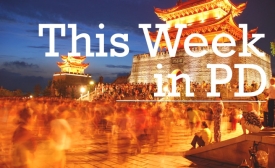public opinion

Can China's attempts at asserting its influence globally solidify its world power status?
This week, Gallup released "Rating World Leaders: What People Worldwide Think of the U.S., China, Russia, the EU and Germany," the first-ever Gallup report on global public opinion about these major world powers.
With the United States and Iran currently negotiating a nuclear deal under which those sanctions would eventually be lifted, some American companies are now hoping for new business opportunities in a country that has long been off limits.
Yet it seems that the Chinese are the most devoted students of Nye. In fact it is not too much of an exaggeration to say the Chinese have become obsessed with soft power.
The run up to next year’s election promises to involve more than the usual amount of debate about how America should engage the world. These three candidates – Clinton, Paul and Rubio – represent a stark contrast on that question.
Washington’s long-awaited nuclear deal with Iran prompted relief in Tehran over an end to international isolation, anxiety among Middle Eastern allies over the United States’ “Persian pivot,” and skepticism in the U.S. Congress, given Iran’s long-standing sponsorship of terrorism. The framework agreement will also have wider repercussions — for Asia.
On a political level, it is clear that both the Americans and the Vietnamese have an interest in moving past the long ago war and strengthening areas of cooperation. This year marks the 20th anniversary of the normalization of formal diplomatic relations between the United States and Vietnam and the relationship is rapidly developing.
China’s moves in Laos are indicative of a much grander strategy, however, which aspires to deepen Chinese-Thai relations, counter Vietnam, and potentially even ‘flip’ Cambodia from Hanoi’s influence.







